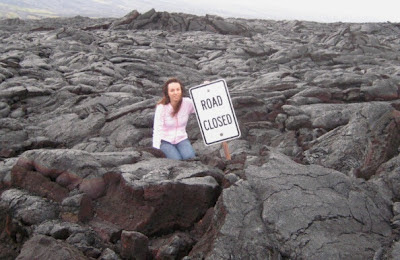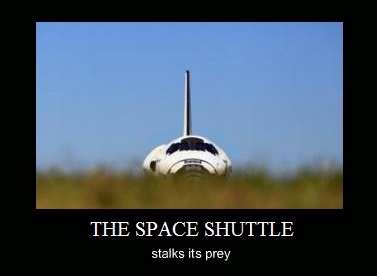What the Mars500 quite glaringly lacked: Females.
All right, Science Women, now is your chance to be part of humanity's effort to reach Mars, and contribute to space agency data about long-duration mission variables. It's noble. It's challenging. It's scientifically pertinent.
And Cornell University researchers want to go to Hawaii.

Bet I've got your attention NOW
Alas... hula dancing and luaus aren't included. But you could do those afterward if you are accepted into the study on the Orchid Isle of the Hawaiian Islands, where you will spend a minimum of four months on a lava field in a simulated Red Planet habitat¸ much like the Haughton-Mars Project or the Mars Desert Research Station, where Cornell has already conducted some short-term studies.
Six volunteers, under the supervision of three professor-scientists from the University of Hawaii-Manoa, will work and eat as astronauts would on a journey to Mars, including wearing a space suit whenever they leave the habitat for simulated sampling missions.

Lava Fields, anyone?
Project head Jean Hunter will test numerous food preparation and palatability theories over the next three years, determining best recipes and cooking styles, changes in food preferences, and the well-known result of menu fatigue over long mission durations.
Other important factors will be time, power and water needs for food preparation in space -- most famously under-estimated in the Gemini program, where important lessons were learned about scheduling proper nutrition. It took many Apollo astronauts actually GOING ON STRIKE to get the point across to NASA researchers: Food satisfaction cannot be under-estimated. Food, as our bio-fuel, is crucial for survival – but also intertwined with our most basic sensory and social needs.

Scientific Computing reports: "In addition, Hunter will study physical changes that astronauts undergo related to sense of smell, which affects taste and appetite. In micro-gravity environments, food and fluids donhttp://www.blogger.com/img/blank.gif't get pulled [down], and nasal passages swell, compromising smell. Patients on Earth experience a similar response, which the researchers are studying in a series of experiments on bed-rested subjects at the NASA Flight Analogs Research Center in Galveston, TX."
I remember. Food flashback! However, we had it easy compared to this; we had pre-prepared meals brought to us by scientists and nutritionists, whereas anyone who applies to the Hawaiian Study will be required to do a lot more work!
If you think you have what it takes to join the Hawaii Space Exploration Analogue & Simulation, or HI-SEAS, see their Project outlines and Application. Deadline to apply is February 29th!


































































